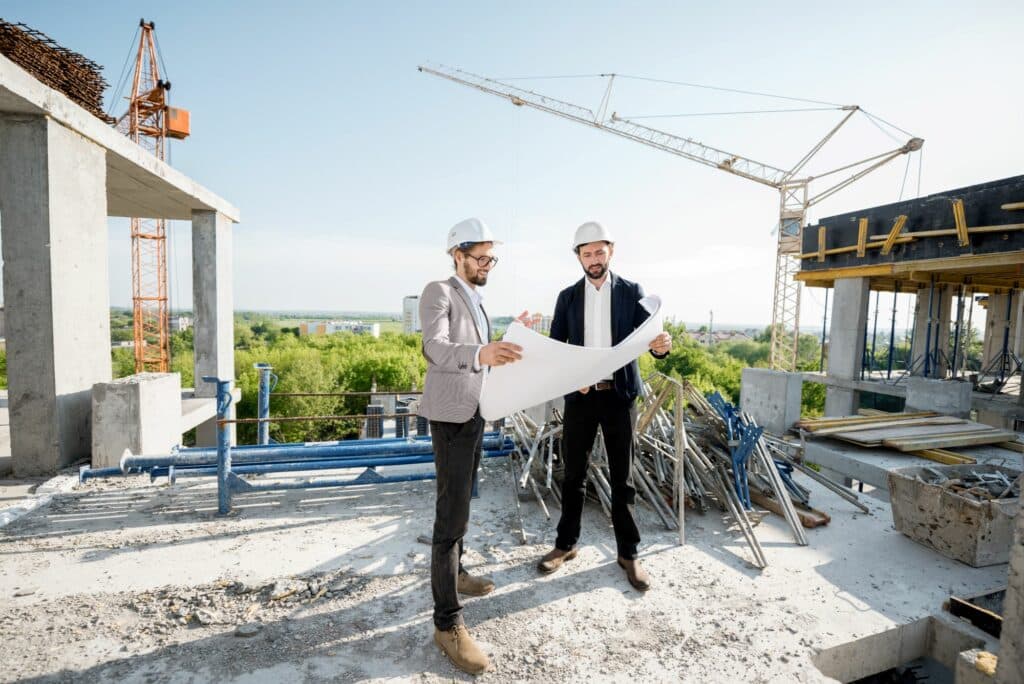Entering the world of property development can seem daunting. Yet with the right approach and a clear understanding, it’s a lucrative endeavor. The real estate market continuously evolves, presenting vast opportunities for those prepared to seize them. Property development encompasses more than buying a plot and building; it’s about understanding the market, leveraging resources, and meticulously planning each step.

In this ever-growing field, securing the right resources is vital. Obtaining the appropriate insurance for real estate developers is a must-have for anyone entering this business. This type of insurance mitigates risks and ensures a safety net for your investments.
Here are steps to becoming a property developer:
1. Research And Understand The Market
Before diving headfirst into property development, get familiar with the current real estate market. Stay updated with trends, recognize emerging patterns, and identify potential investment areas. Remember, knowledge is power. Subscribing to real estate magazines, attending seminars, or joining local real estate groups can help you stay informed. The more you know, the better your chances of making a wise investment decision.
2. Acquire The Necessary Funding
Property development requires substantial capital. Evaluate your financial standing and determine your investment capacity without jeopardizing your stability. You might want to consider various financing options such as bank loans, private investors, or joint ventures. Weigh the pros and cons of each method to find what’s best for your situation. Always be transparent about your intentions and the potential risks involved.
3. Find The Ideal Location
Research potential areas for development, keeping in mind factors like neighborhood growth, nearby amenities, and accessibility. Be patient in this step. Taking your time to find the perfect spot can significantly increase your project’s chances of success. A well-located property will always fetch a better price than one in a less desirable area.
4. Secure Planning Permissions
Once you’ve settled on a location, you must obtain the necessary permits and approvals. This step might sound tedious, but it’s crucial. Visit local councils and understand zoning laws, building restrictions, and other regulations. Securing the required permissions in advance will save you from potential legal troubles later.
5. Design With The End User In Mind
When you start designing the property, think about your target audience. Will you cater to families, singles, or perhaps senior citizens? Your design should reflect the needs and preferences of your target demographic. Collaborate with architects and designers who understand these nuances to ensure the property appeals to the intended audience.
6. Oversee Construction Diligently
With the design ready and permissions in hand, it’s time to start building. Regularly monitor the construction process to ensure it aligns with your vision. Choosing a trustworthy contractor is key. Regular check-ins and updates will keep the project on track and within budget. Adjust as necessary but avoid drastic changes that could escalate costs.
7. Market Your Project Effectively
Even the most exquisite property won’t sell itself. You’ll need to employ effective marketing strategies to draw attention to your development. Hire professionals, take advantage of online platforms, and network extensively. Word of mouth, especially in the real estate world, can work wonders. Therefore, always ensure you leave a good impression.
8. Stay Updated And Keep Learning
The real estate market is dynamic. Even after completing a project, you can’t rest on your laurels. Continually educate yourself. Attend seminars, take courses, and join developer communities. By staying updated, you’ll remain competitive and ready for your next venture.
9. Manage Your Risks Strategically
As with any investment venture, property development carries its own set of risks. It’s essential to identify and mitigate these risks early on. You’ve already taken the initial step by securing insurance for real estate developers, but there’s more to risk management. A comprehensive risk assessment should be conducted for each project.
By anticipating potential issues, from market downturns to construction delays, you’re better prepared to handle them. Moreover, always have a contingency plan. Unpredictable circumstances like weather-related setbacks or sudden market shifts can impact your timeline and budget.
10. Build And Nurture Your Network
Connections are invaluable in the property development world. From real estate agents to fellow developers, lawyers to local government officials, having a robust network can open doors to exclusive opportunities and resources.
Attend industry events, join real estate associations, and actively participate in local community affairs. These connections can offer insights, partnerships, or even direct business opportunities that you wouldn’t have access to otherwise. Remember, in the world of property development, who you know can sometimes be just as important as what you know.
Conclusion
Becoming a successful property developer isn’t a walk in the park. But by following these steps and staying committed, you can carve out a profitable niche for yourself in the real estate world. Remember, diligence, patience, and continuous learning are your allies on this exciting journey.


